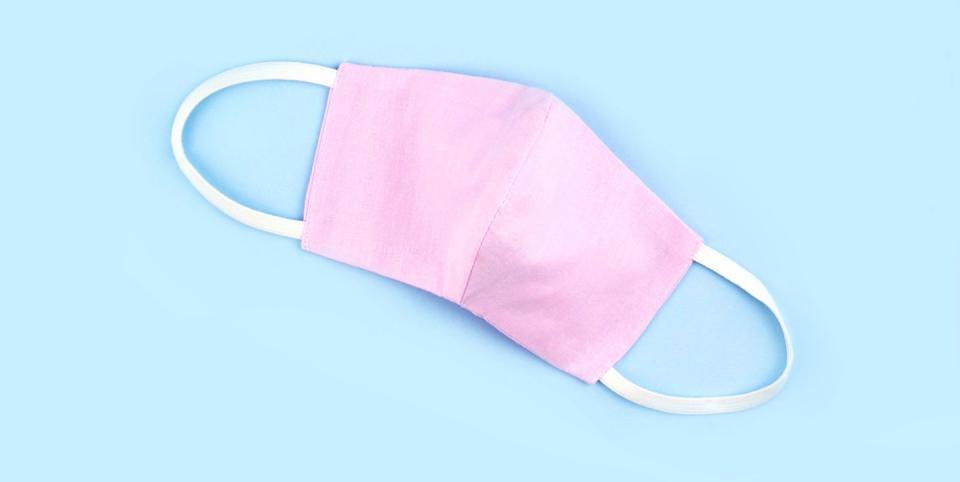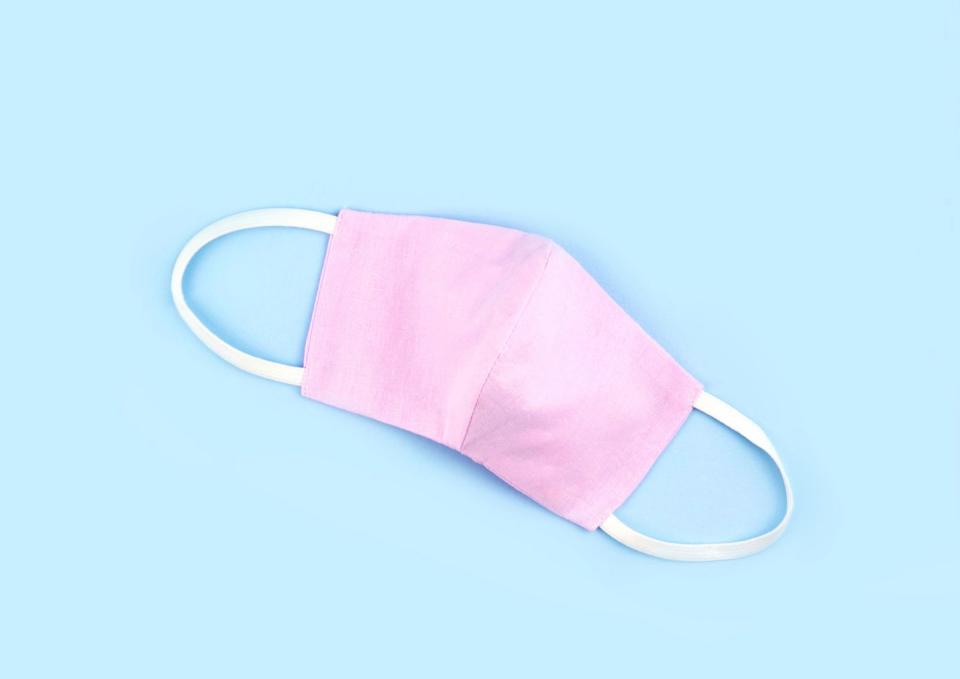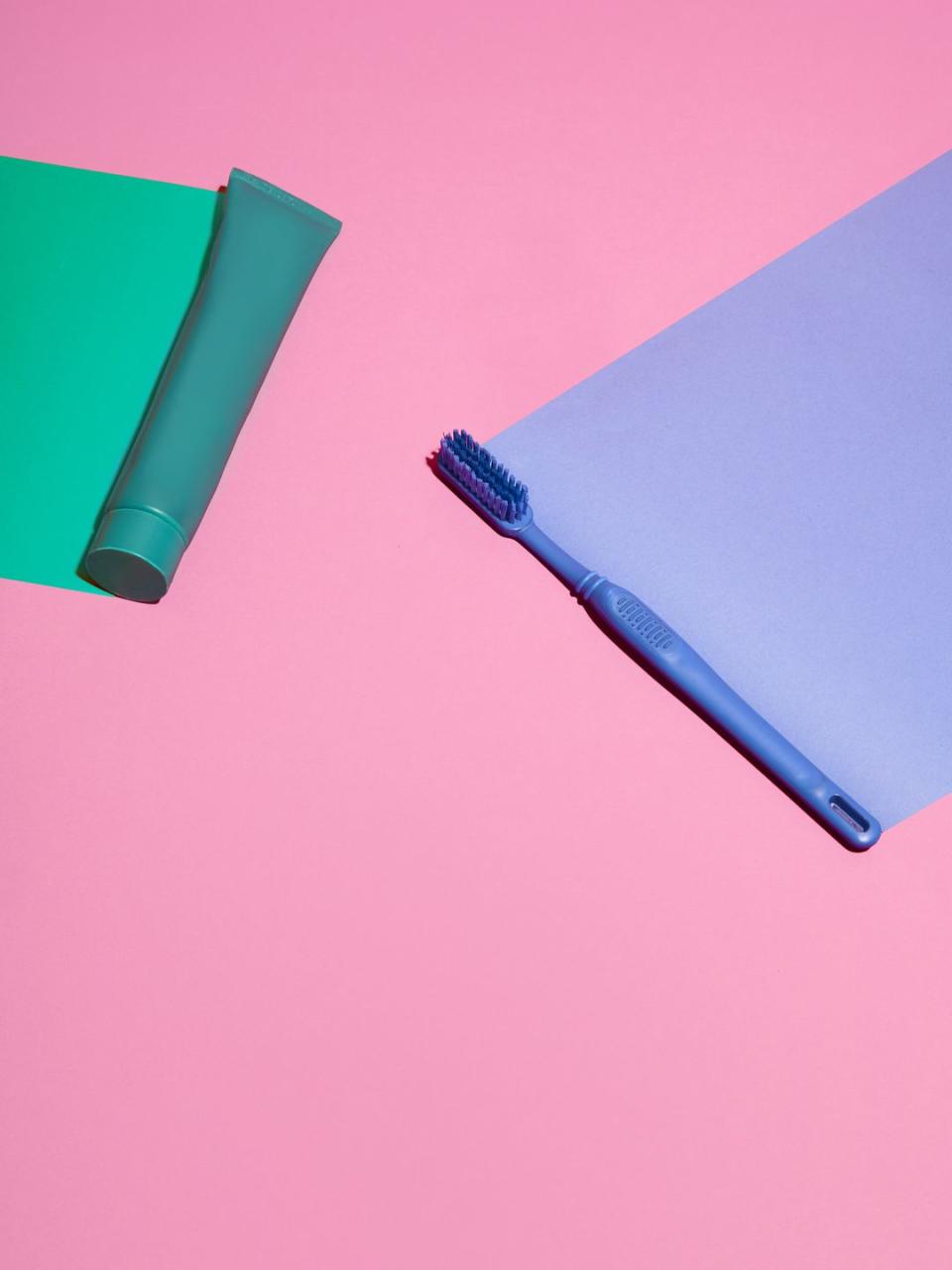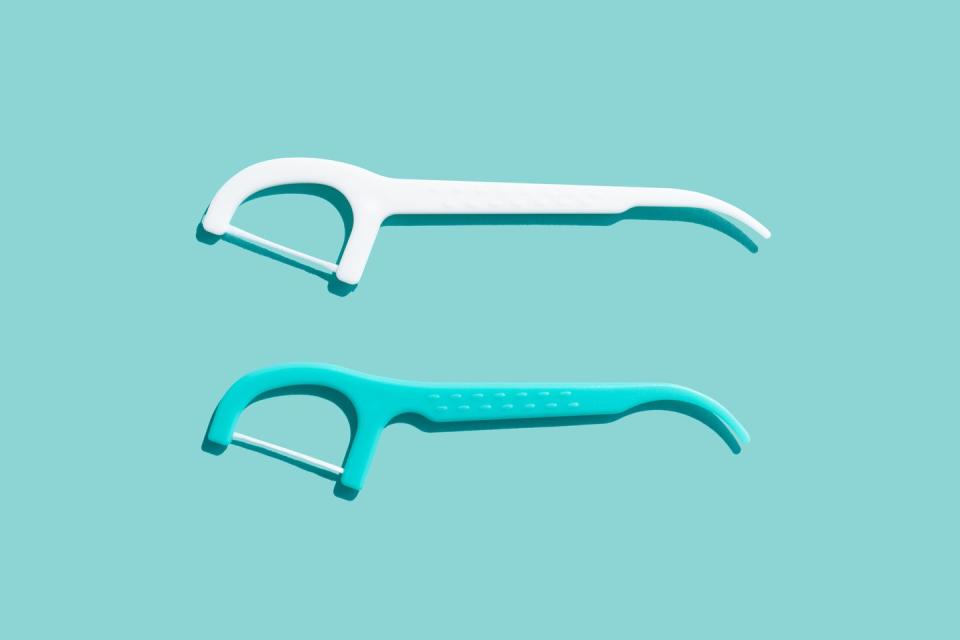This is why your breath smells in a face mask

2020 is a year that will be remembered for many things, one of which is the introduction of face masks into our lives. We're now almost-permanently accompanied by a face mask wherever we go, in order to help prevent the spread of coronavirus. And that's all well and good (because we're always game to embrace any measures that will help save lives) but it's also been the trigger of an unfriendly awakening for some: the realisation that their breath ain't always so fresh.
If you've ever put on a face mask and thought, 'Cor, that stinks', then the sad truth of it, according to dental expert Dr José Navarro, is that your own breath is the likely culprit - not the face mask itself.
"Face masks themselves don’t make your breath smell, they just make us more aware of our bad breath," explains Dr Navarro, Dental Director at Floe. "Unfortunately, if you’re experiencing bad breath now, it probably means you had bad breath before the pandemic - you just didn’t know it." Ah, great.
But the good news is, if this is a discovery you've made thanks to the mandatory introduction of face masks in shops and on public transport, you are certainly not the only one. "The only bad thing about wearing a face mask when in public is that I get to taste, and sometimes literally chew, my own bad breath," one honest person wrote humorously on Twitter.

The reason you're only noticing a bit of a pong - also known as halitosis - now, says the dental expert, is because of the new found proximity to your own outward breath. "The mask acts in the same way as when we cup our hand over our mouths to check our breath, but it’s constantly there. If the mask covers your mouth and nose, it means the breath stays put allowing you to smell it," explains Dr Navarro.
Let's not be completely negative about all this, though. Optimistic point 1 of the day is as follows: How many people are ever quite as close to your mouth for an extended period of time as your face mask is? Very few, is the answer, so the chances are you probably don't have a secret reputation as being the bad-breathed one in the friendship group. Optimistic point of the day 2 is this: There's very much something you can do about any halitosis you may have.
"The main reason for bad breath is poor dental hygiene," says the dentist, adding that other potential causes for bad breath can include smoking, eating specific foods, or having an infection in your teeth or gums. "Low saliva production can also be a cause," he notes, which is something a dentist would be able to diagnose in a clinic. "In general terms, avoiding tobacco, eating healthily and keeping an effective oral care routine will definitely help."

If you think dental hygiene could be the cause of your bad breath, Dr Navarro has some advice about how you can rectify it. "Maintaining a consistent routine each day will protect our mouths in the long-term as well as help prevent bad breath," he says. His suggested routine?
Floss once per day
Brush twice per day
Swap your brush every three months
Flossing is so important, explains the dentist, because "40% of your teeth surface area is inaccessible to the toothbrush." That's the tight gaps in between your teeth, basically, which are known to be places where bacteria can build up more easily because they don’t come in contact with food, the tongue, liquids and other things that might help to clear it out. "By failing to floss you are basically leaving out half of your mouth," points out Dr Navarro.

Before you assume that the advice to replace your toothbrush regularly is just a marketing gimmick designed to get you to splurge on more oral hygiene products, let us dispel that myth. "It is a vital cornerstone to your long term oral health and avoiding expensive, painful problems," Dr Navarro says, sharing his dental wisdom.
"Worn bristles don’t clean, which can in turn lead to bad breath. The core purpose of brushing your teeth is to remove plaque - and worn bristles just can’t do this effectively," he notes. "Frayed bristles become spiky and bend away from the teeth whilst brushing, preventing the fine lines from reaching the sulcus; the area line between gums and teeth."
So there you have it: a pretty sound argument as to why you should keep your oral hygiene in check - both for the sake of your breath and your bank balance.
The latest issue of Cosmopolitan UK is out now and you can SUBSCRIBE HERE.
Like this article? Sign up to our newsletter to get more articles like this delivered straight to your inbox.
You Might Also Like

 Yahoo Sport
Yahoo Sport 





































